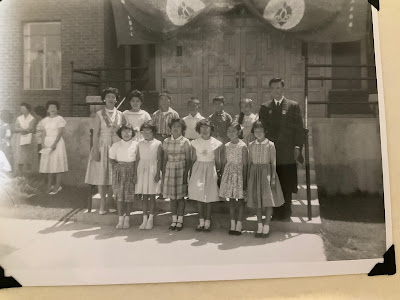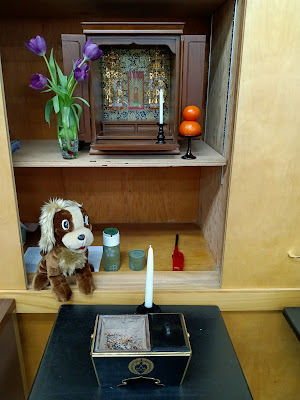Buddhism is for All Ages
Sometimes people ask Rev. Kathy and me how to share the Buddhist teachings with families and children. The truth is that all people, no matter our age, ability, or status, face problems that the Buddhist teachings can help us with.
>
Photo: Children have always been a part of the Idaho-Oregon Buddhist Temple community.
People of all ages share the same kinds of feelings--we all have hopes and fears and we all experience a wide range of emotions. We all get frustrated, feel lonely or hurt, and get angry and upset. We all suffer in similar ways no matter how old or young we are. And we all feel better knowing that we are accepted by our family/community...that we belong.
These simple observations are actually the Four Noble Truths taught by Shakyamuni Buddha:
- Life is difficult and sometimes painful (suffering).
- Suffering usually occurs because we want things to be different than they are.
- We actually don’t have to suffer nearly as much as we usually do.
- There are specific things we can do and ways we can think right now (at any age or circumstance) that will help us live a happier, more compassionate, and meaningful life.
Children certainly experience a lot of suffering—physical pain, disappointment, grief, frustration, and anger. And because they are little and dependent on others, they often get more frustrated than us adults who have more control over our lives. Because suffering is universal, we can use a Buddhist framework for helping our children cope with life’s difficulties from the time they are born.
The first things we can do for children is to recognize when they are suffering because of strong emotions and attachments—wanting things they can’t have, being angry when someone does something they don’t like, being frustrated when something unexpected or hurtful happens. Simply noticing their suffering and acknowledging it is important—we all like to know that we are not alone in our pain and that others care about us Once we have acknowledged their pain, then we can help them look for ways to feel better.
Photo: Rev. Anne enjoys story time as much as the children do!
The second thing we can do is to make sure we view our children’s painful experiences through the perspective of compassion. Sometimes it is tempting to minimize or ignore a child's suffering because it seems less important than "adult" concerns. But Amida Buddha’s infinite compassion is unconditional and supports all of us, no matter our age or the cause of our suffering. Although none of us can offer the compassion of a Buddha, we can still offer a lot of compassion to each other including kids.
And another thing we can do for children is help them approach the world through a lens of gratitude. We can try to spend time with them looking for things to be grateful for, even when life is hard. Letting children see us appreciate life and helping them do the same will help them to grow to be appreciative and compassionate people themselves.
>
Photo: Buddhism values the lives of all beings. Here our small portable altar is adorned with a stuffed animal to celebrate our annual pet memorial service.
Children are an important part of our community and they are welcome at our services.
In Gassho,
Rev. Anne Spencer


